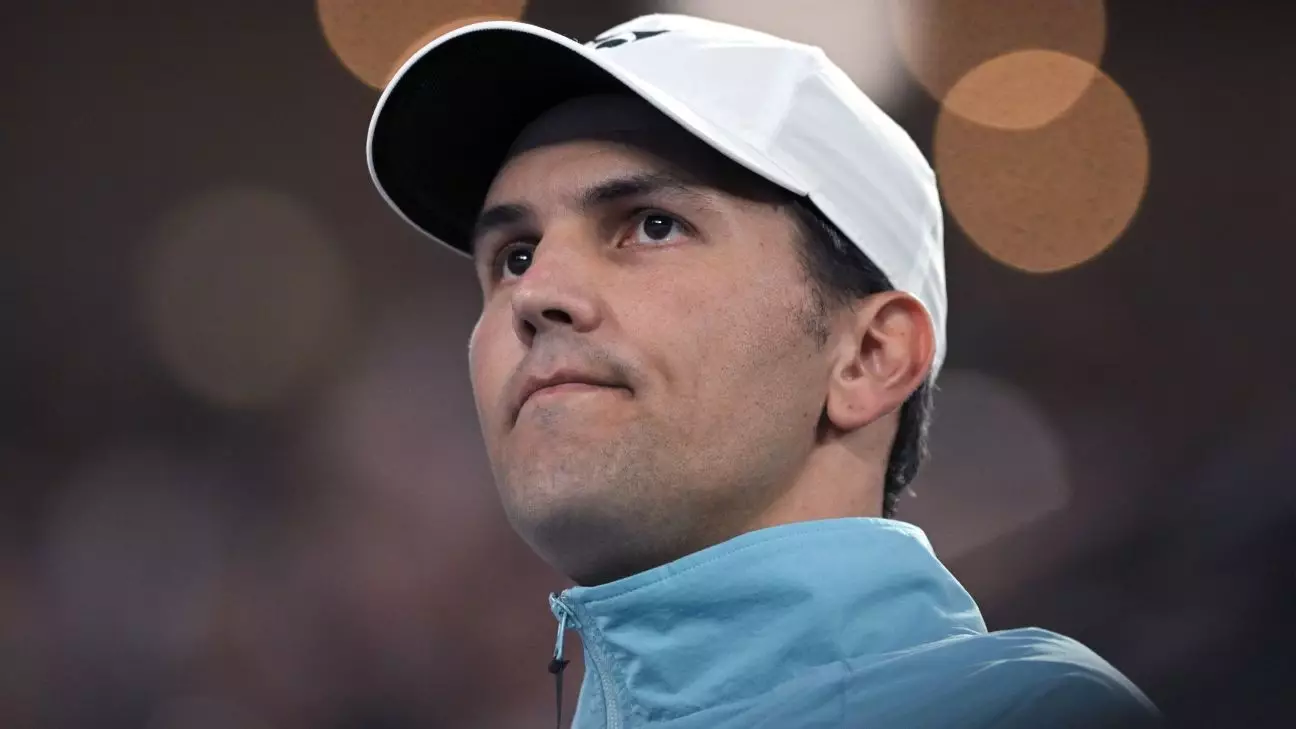The situation surrounding coach Stefano Vukov has reached a tense impasse, highlighted by an official statement from the WTA Tour. Following a thorough investigation into allegations of misconduct, the WTA confirmed that Vukov’s suspension remains active. Initially imposed as a provisional measure, this suspension raises several questions about the broader implications for players and coaches within professional tennis. While the details of the investigation are cloaked in confidentiality, the ruling reflects the governing body’s commitment to uphold its code of conduct, irrespective of the impact on individual careers.
This suspension is particularly significant for Elena Rybakina, who rose to prominence after winning Wimbledon in 2022. Rybakina’s relationship with Vukov has been described by her as positive; she has publicly defended him, asserting that he “never mistreated” her during their professional relationship. This contradiction adds a layer of complexity to the narrative. Rybakina’s statements suggest a disconnect between her experiences and the allegations leading to Vukov’s suspension. Nonetheless, Rybakina’s career trajectory has been complicated by these developments, affecting her training and competitive advantages as she strives to maintain her ranking within the top tier of women’s tennis.
The ongoing turmoil also underscores the delicate balance of coaching dynamics in the high-pressure environment of professional sports. After parting ways with Vukov last year, Rybakina briefly shifted to a new coach, Goran Ivanisevic, a former Wimbledon champion himself. However, the recent reinstatement of Vukov into Rybakina’s camp complicates matters further, especially in a competitive landscape where consistency and trust in one’s coaching team can dictate performance. Ivanisevic’s announcement of his departure after Rybakina’s exit from the Australian Open emphasizes the challenges faced by athletes in managing relationships while navigating allegations and ramifications that might not directly involve them.
WTA’s Stance and Future Considerations
The WTA has prioritized confidentiality, indicating that it will not disclose specific details of the investigation or the reasoning behind Vukov’s ongoing suspension. This strategy aims to uphold the integrity of the process but also raises concerns about transparency. For fans and players alike, understanding the rationale behind disciplinary actions could foster greater trust in the governing body. As the landscape of women’s tennis evolves, the way the WTA addresses these complexities will be crucial in shaping the future of player-coach relationships and ensuring a safe, fair environment for all individuals involved.
The suspension of Stefano Vukov serves as a poignant reminder of the complications that can arise in professional sports, particularly in high-stakes areas like tennis. With Rybakina’s career in a state of flux amid this controversy, the dynamics within the sport are sure to be scrutinized moving forward. The outcome of this situation could set precedents for how allegations are handled and the extent to which personal experiences are acknowledged versus the overarching authority of sports governing bodies. As all parties navigate this uncertain terrain, one thing remains clear: the implications of this case extend far beyond the immediate individuals involved.

